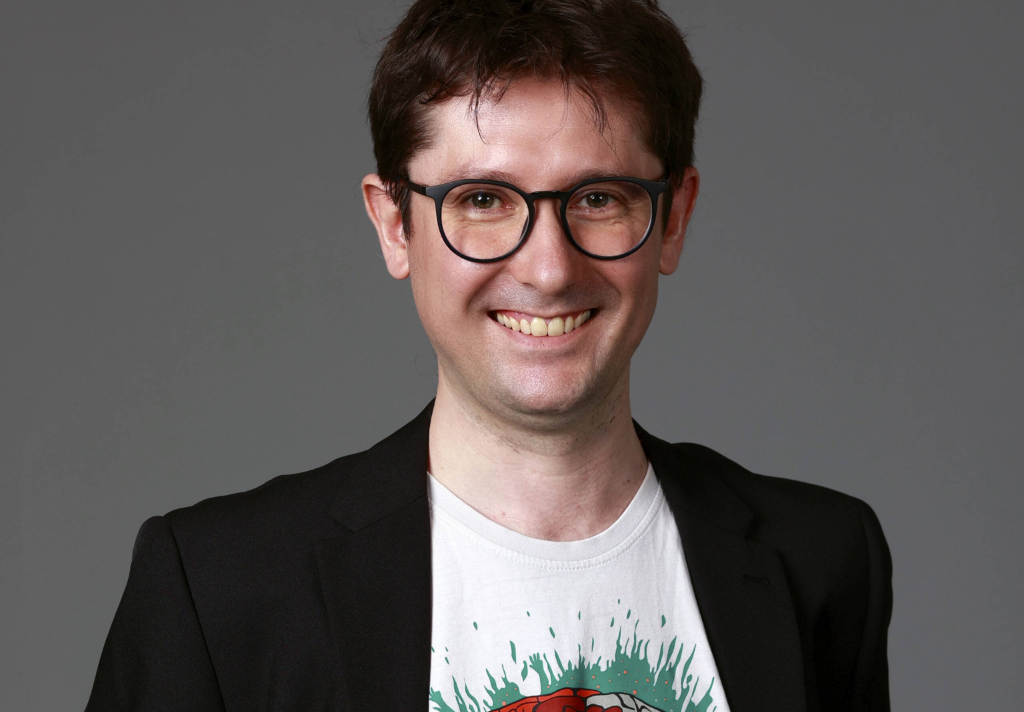Guillaume Dumas uses neuroscience and artificial intelligence to develop earlier, more personalized approaches to care. His work turns complex data—from game-based assessments to wearable technologies—into practical tools that can be used in real-world settings.
He is an Associate Professor at Université de Montréal, a researcher at CHU Sainte-Justine and Mila, and holds the Canada Research Chair in Artificial Intelligence and Mental Health. Professor Dumas has been a TACC member since 2021.
Preventative medicine thanks to AI (in French with subtitles available in French and English). (Production: Aura Strategies)
What sparked your interest in neurodevelopment research?
Dumas: My early work used multi-brain neuroscience to probe how brains synchronize during live social exchanges. Autism stood out as an ideal condition where social-communication differences may be captured through these new inter-brain connectivity measures.
Studying autism allows me to test fundamental theories of social cognition while co-creating assessment tools with clinicians and families who will benefit most from them.
What motivates your work?
Dumas: Each day, I am driven by the challenge of understanding social cognition and transforming theoretical insights into practical interventions, whether through serious games or novel AI algorithms.
Equally energizing is mentoring the next generation of interdisciplinary scientists and watching their ideas propel the field forward.
What impact do you hope your work will have?
Dumas: I want my science to become a common good: open datasets, transparent methods, and evidence-based tools that clinicians, educators, and families can freely use.
By enabling earlier, more personalized support and fostering genuinely neuro-inclusive environments, we can turn knowledge itself into a driver of collective well-being.
Why did you become a member of TACC?
Dumas: TACC offers the ecosystem needed to scale impact through shared training opportunities, open science platforms, and close engagement with autistic self-advocates across Québec.
Joining allows me to contribute my expertise while benefiting from cross-disciplinary collaborations that accelerate translation from lab to community.
Looking ahead
Professor Dumas envisions a future where science is more embedded in daily life—where a child’s game in a clinic waiting room doubles as a real-time assessment, and lightweight devices alert families to early signs of stress. This vision blends innovation with equity: open tools, broader access, and care that is timely, personal, and inclusive.
We share these stories through TACC to spark connections and highlight ideas that bridge research, care, and living and lived experience.
Connect with Professor Dumas and learn more about his work:

